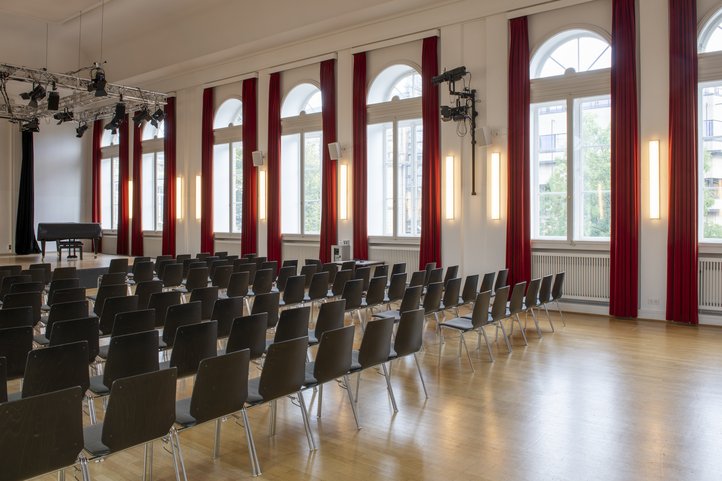The unknown Handel – discarded music from his London operas
Georg Friedrich Handel spent most of his life in London. After spending time in Hamburg, Italy, and Hanover, the Halle-born composer made the British capital his new home at the end of 1710. Most of his 37 operas for London have been well preserved, both in his compositional manuscripts and his conducting scores, which provide insight into his working processes. During the composition process, he frequently made changes, corrections, and deletions for various reasons. When reviving his works, he often adapted the music to the new cast in order to get the best possible performance from his singers. However, some operas show that music was also deleted before the first performance. In many cases, Handel reused it either in the same opera, in a later revival, or in another opera. In some other cases, however, the music was deleted and not reused later. This lecture focuses on precisely these arias, which are almost completely unknown today. Using selected examples from Ottone (1723), Giulio Cesare (1724), and Deidamia (1741), the reasons behind the deletions will be explored, the music will be performed by students of the Institute for Early Music and Performance Practice, and the question will be asked how to deal with this music, which Handel apparently rejected and which is relatively unknown today.
Curriculum vitae
Studied musicology, organ, and harpsichord at Newcastle University (UK). Doctorate in 2007 at Ruprecht Karls University in Heidelberg. 2008–2011 Research assistant and assistant at the Musicology Seminar at Heidelberg University, where he was also a research assistant from 2011 to 2014 in a project on singers in London in the early 18th century (DFG grant with his own position). 2014–2017 Research assistant and project manager in the project ‘OPERA – Spectrum of European Music Theater in Individual Editions’ at Goethe University Frankfurt am Main. From 2017 to 2025 Academy junior professor at Eberhard Karls University Tübingen, linked to the New Schubert Edition. Summer semester 2024: substitute professor at the University of Hamburg. Since April 2025: professor of musicology with a focus on early music at the University of the Arts Bremen.
Member of the editorial board of the Halle Handel Edition, board member of the Georg Friedrich Handel Society, Halle (Saale), and secretary to the council of the Handel Institute, London. Editor of music reviews for the Journal for Eighteenth-Century Studies.
Important information
The HfK is barrier-free to a limited extent at the Dechanatstraße location.
The entire building is fully accessible via two lifts, in the west wing and in the middle wing, from the basement to the 2nd floor. Due to a height offset on the ground floor, the toilet for people with limited mobility can only be reached barrier-free from the entrance via the basement and the 1st floor.
Public disabled parking spaces are designated on the street immediately adjacent to the courtyard entrance. In addition, a disabled parking space can be allocated on the premises by the caretakers and the security service. The colleagues can be reached by telephone at +49 421 9595-1400.

